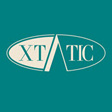In the third quarter of 2023, the global digital health funding landscape experienced a significant shift, with a notable drop of 14% QoQ (Quarter over Quarter), totaling $3 billion. This downturn marked the lowest quarterly funding level since 2016, in contrast to the broader venture funding market, which saw an 11% increase during the same period. (1)
The United States, despite witnessing a 14% QoQ decline in digital health funding, remained a pivotal player, contributing to 63% of global digital health funding and 52% of deals in Q3 ’23. However, this decline brought US digital health funding to its lowest level since 2016, accompanied by the fewest deals in a quarter since 2013.
Globally, digital health deals experienced a notable 33% drop QoQ, reaching 247, the lowest count in nearly a decade. Nevertheless, digital health mega-round deals, those exceeding $100 million, increased for the second consecutive quarter, totaling 6 in Q3 ’23.
Notably, the largest deal, a $273 million Series C funding, went to Generate Biomedicines. Despite the decline in overall funding, the relative stability of median deal size, down only 5% in 2023 YTD compared to 2022, suggests resilience in the digital health sector, particularly in early-stage deals which comprise 64% of total deals.
Average deal size, however, witnessed a 19% decrease in 2023 YTD, influenced by reductions in mid- and late-stage deal sizes.
The new climate of investment in Q3’23
Before delving further into the new trends, it’s important to define a key term in this sector: ‘digital health unicorns.’ These are privately held startup companies in the digital health sector valued at over $1 billion. They represent significant players in the industry, often driving innovation and attracting substantial investment.
Several factors contribute to the diminished funding environment, and they are all interconnected. The prospect of a sluggish economy and the onset of elevated interest rates have adversely affected the capacity of venture funds to secure capital, resulting in a decline in funding for startup ventures.
The diminished valuations of startups and a lack of robust IPO activity have not only diminished the overall value of funds’ portfolios but also postponed returns to limited partners (LPs), fundamentally restricting the capital available for fresh investments. These circumstances have cultivated a more cautious mindset among investors, especially those in generalist and crossover funds, leading to a reduction in the number of deals and more stringent negotiations on deal terms. This collective impact further exacerbates the downward trend in funding cycles.

Keep up to date with the fast-paced changes in the digital health industry
Explore the dynamic landscape of digital health unicorns in 2023 with the help of BGO’s experts in the field

The startup fundraising environment has had its job cut out for it. Since startups can usually have a more volatile growth period and given investors’ rising hesitation on how to handle many aspects of funding, startups are having a difficult time with the “next phase” in their development. The ones suffering the most from this period of diluted funding are startups in the early- to mid stages of their business.
Some experts even suggest that the field for such enterprises, especially for mid-stage companies, has changed so much that it is like playing an altogether different sport from the one they are used to.
How does the focus shift?
In the digital health sector funding has fallen down to 2016 level lows, getting to $3 billion which is a 61% decrease from the third quarter of $11.7 billion just two years back.
Digital health unicorns and startups are adapting to the changing economic landscape and reduced funding in several ways. One of the key strategies has been to shift focus towards areas that are attracting more investment under the current market conditions. There has been a significant shift in funding away from pandemic-era focuses like on-demand healthcare towards sectors like disease treatment, value-based care, and nonclinical workflow. This realignment of funding priorities reflects a broader trend in the digital health sector to adapt to changing investor interests and market needs.
Furthermore, in response to the challenging economic environment, digital health companies are navigating difficult conversations around valuation adjustments and ownership dilution. The need to tackle transitions head-on, even if it means facing down rounds, is critical for these companies. This pragmatic approach to the current market realities, including simpler deal terms and incentivizing operating teams, is essential for survival and growth in a more financially constrained environment.
The pandemic initially brought a surge in digital health innovation and investments in 2020 and 2021, fueled by government stimulus and regulatory clarity. However, the subsequent years saw mounting economic challenges such as inflation, tightening monetary policy, and global conflicts affecting nearly every economic sector, including digital health. As a result, U.S.-based digital health startups experienced a significant drop in funding in 2022, just over half of the record-breaking amounts raised in 2021.
Adapting to these economic changes, digital health companies are also exploring new business models and strategies. Some are focusing on enabling value-based care arrangements, taking on risk themselves, or developing solutions for high-cost therapeutic areas like mental health and kidney care.
These strategic shifts are driven by the evolving healthcare landscape and the need to offer sustainable, cost-effective solutions to healthcare challenges.
How do the unicorns handle the changes?
Several digital health unicorns are making significant strides in enabling value-based care arrangements, taking on risks themselves, or developing solutions for high-cost therapeutic areas like mental health and kidney care.
Here are some examples:
- Aledade: Aledade focuses on partnering with primary care practices to transition them to value-based care models. They work closely with physicians to implement strategies that improve patient outcomes and reduce costs, thus aligning with the principles of value-based care. Aledade provides technology, data analytics, and support services to help practices manage population health, which is crucial in controlling the cost of chronic diseases and improving healthcare quality.
- Calm: As a mental health-focused unicorn, Calm offers a wide range of digital therapeutic solutions to address stress, anxiety, and sleep disorders. Their platform provides meditation, sleep aids, and relaxation tools, crucial in managing mental health conditions that can otherwise lead to high healthcare costs. By focusing on preventive mental health care and self-management tools, Calm contributes to reducing the overall burden of mental health conditions.
- Biofourmis: Biofourmis specializes in digital therapeutics and personalized care, leveraging AI and machine learning. They develop solutions for complex and high-cost therapeutic areas, including chronic disease management. Their approach to using technology for continuous monitoring and personalized treatment plans aligns with the concept of value-based care, aiming to improve patient outcomes while reducing costs associated with chronic disease management.
The regions of digital health unicorns
The three main regions that take the biggest parts in digital health funding worldwide are the US, Europe, and Asia.
In the current state of Q3, the US is in the lead when it comes to funding, sitting at $1.9 billion and 128 deals made in the quarter. Europe is in second place with $0.6 billion and 50 deals, while Asia is in third with $0.5 billion and 55 deals made. An important part of funding deals for digital health companies are mega-round deals which account for 29% of digital health funding in the entire quarter.
A “mega-round” in venture capital funding refers to a startup’s fundraising round of $100 million or more. These rounds have become increasingly common, especially in the U.S. tech startup sector, and comprise a significant portion of overall venture capital funding. The term indicates a trend toward startups raising larger amounts of capital in single funding rounds, which is a shift from smaller, more frequent rounds of fundraising. Mega-rounds have been particularly influential in driving the overall value of venture capital deals upwards, reflecting the growing scale and ambition of tech startups.
The US has had three such deals this third quarter while Europe and Asia have their first mega-round deals in the past year. The reason why such deals are important for the sector can be clearly seen in the fact that the three deals that the US made accounted for $0.5 billion of their entire funding capital. The biggest deal in the quarter goes to Generate Biomedicines, US, which makes up 9% of the total funding with a round amount of $273 million.
Among the top unicorns by valuation in Q3 2023 were:
- Devoted Health (U.S.): $12.6 billion valuation.
- Tempus (U.S.): $8.1 billion valuation.
- Caris (U.S.): $7.8 billion valuation.
- Ro (U.S.): $7.0 billion valuation.
- We Doctor (China): $7.0 billion valuation.
- Doctolib (France): $6.4 billion valuation.
- Hinge Health (U.S.): $6.2 billion valuation.
- Benchling (U.S.): $6.1 billion valuation.
- Lyra Health (U.S.): $5.9 billion valuation.
- Cityblock (U.S.): $5.7 billion valuation.
To better understand why the US is the biggest funding point worldwide we need only consider that the US has 78% of the global digital health unicorn herd. Specifically, the U.S. had 74 digital health unicorns, while Europe and Asia each had 10.
There have been no new unicorns for the past two quarters, however. This is mostly due to the digital health sector experiencing explosive growth over recent years, especially fueled by the COVID-19 pandemic. This rapid expansion has led to a market saturation point, where the influx of new, groundbreaking startups capable of reaching unicorn status has temporarily slowed.
Additionally, as the digital health sector matures, the rate of new, disruptive entrants achieving rapid growth might naturally decline. Instead, there may be a focus on scaling existing solutions and technologies that have proven effective.
The United States
The digital health funding in QoQ in the US has dropped 14% to reach $1.9 billion – as low as the levels from 2016. Even though the funding has significantly dropped in comparison to previous years, there have been many deals made, especially in the US.
The one mentioned earlier by Generate Biomedicines is at the top of the quarter worldwide. This particular unicorn is a biotechnology company that operates at the intersection of machine learning, biological engineering, and medicine. It’s known for pioneering generative biology to create innovative medicines.
There have been other big deals made by US unicorns. Harbinger Health, for example, is revolutionizing the field of cancer detection and screening. The company focuses on developing early-stage, multi-cancer detection tests using a blood-based screening platform. Harbinger Health combines advances in artificial intelligence with proprietary insights into the biology of cancer’s origins. They have raised $140 million in funding, which will be used for the completion of their Cancer ORigin Epigenetics-Harbinger Health (CORE-HH) 10,000-participant clinical study of its novel blood-based cancer screening platform.
These companies work directly with some of the top investors in the digital health field which include General Catalyst and Samsung NEXT with four companies they support to their names. The first is a US-based venture capital firm that focuses on investments across various stages, including seed-stage, early-stage, later-stage, and growth-stage companies. They have recently expanded their horizons to investing in European and Indian startups as well. The latter, on the other hand, is the venture capital arm of Samsung Electronics, focusing on technology investments. They primarily invest in bold and ambitious founders, supporting them in pursuing innovative and potentially disruptive technologies.

Delve deep into the methods of the –digital health unicorns of 2023!
Learn how from our consultants. We work with clients worldwide.
The two main regions in the US where digital health unicorns thrive are Silicon Valley and New York. For Silicon Valley digital health deals increased 39% QoQ reaching $0.4 billion in funding while for New York funding halves to $0.2 billion from last quarter. The biggest deal in the Valley was made by RapidAI for $75 million while K Health accounted for New York’s biggest deal of $59 million this quarter.
Asia
In Asia, the digital health sector experienced a funding surge despite a decline in the number of deals. The funding levels for digital health in Asia reached $0.5 billion across 55 deals in Q3 2023. This represents a significant increase in funding, despite the fact that the total number of deals was the lowest since 2015.
Among the top equity deals in Asia during this quarter, one of the notable ones was HaloDoc, which secured $100 million in funding. The company is an Indonesian health tech company that offers integrated online health services including telemedicine, medicine ordering, lab test and doctor appointment booking, third-party health insurance purchase, and at-home health testing.
The top investor in Asia is KB Investment with three companies that it has its focus on. This investor is a venture capital firm based in Seoul, South Korea. Their investment focus spans multiple industries, reflecting the diverse nature of the emerging and evolving market in South Korea and the broader Asian region.
In comparison to the US, the top deal made in Asia’s primary region – Japan – was for only $3 million by CaTe. With these developments, Asia is demonstrating a growing and evolving digital health landscape, marked by significant investments in promising ventures.
Europe
In Q3 2023, Europe’s digital health sector saw a 42% quarter-on-quarter decrease in deal count, while funding slightly increased. The region’s digital health market is adjusting, with a notable shift towards fewer but larger deals, indicating a maturing market. This period also marked Europe’s first digital health mega-round deal in a year, signaling sustained investor interest in substantial, scalable health tech innovations.
The deal for $165 million was made by CMR Surgical which is based in Cambridge, United Kingdom, and is a notable medical device company specializing in robot-assisted surgery. They produce the Versius Surgical Robotic System, designed to be more flexible and versatile than established systems like the Da Vinci Surgical System.
The next deal on Europe’s list was closed by Corti for $60 million which does not make it a mega-round deal but shows positive development for the European digital health sector. Corti is a Danish startup, based in Copenhagen, that develops AI assistants to support healthcare clinicians in real-time patient assessments by documenting patient interactions, and providing analysis for decision-making.
The top investor in the European market is Octupus Ventures, based in London. The company invests across the UK and Europe, particularly in sectors like health tech, climate, bio, fintech, deep tech, consumer, and B2B software. The firm is known for backing founders who aim to make a positive impact on society and the environment. Their current count for companies they invest in is three in Europe.
The trends in Europe contrast with the global downturn in digital health funding, suggesting a unique resilience and potential for growth in the European market.
In the third quarter of 2023, the digital health sector experienced modest yet consistent progress. There was a stable flow of funding, with investments increasingly directed towards essential areas such as workflow support and the facilitation of value-based care. This period also saw emerging confidence from the public market.

Whether you’re a startup, a Fortune 100 company or a government organisation, our team can deliver a solution that works for you.
BGO Software
Despite these positive developments, founders still face challenges in adapting their fundraising and commercial strategies to the evolving market conditions. The hope is that both investors and entrepreneurs will gradually adapt to this more demanding market and establish a more predictable operational rhythm.


















